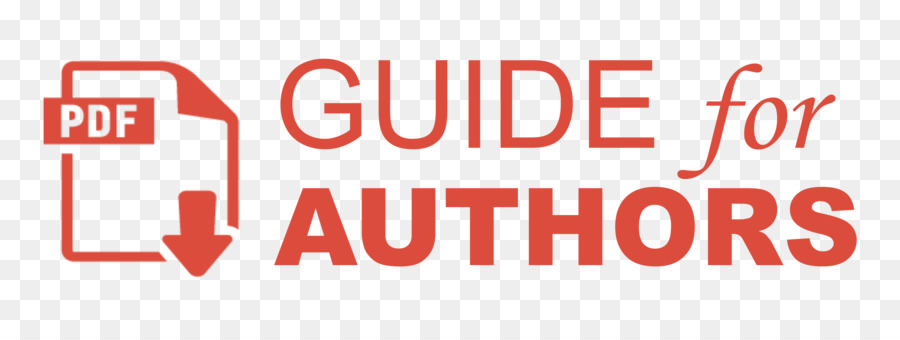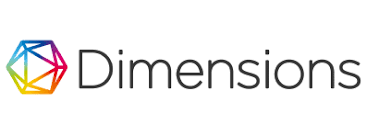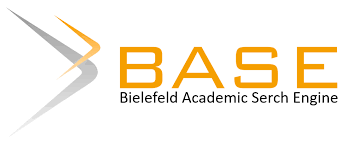THE EFFECTIVENESS OF COGNITIVE LEARNING STRATEGIES IN IMPROVING STUDENTS’ READING ABILITY AT THE FIRST SEMESTER STUDENTS OF ENGLISH DEPARTMENT OF KALIMANTAN ISLAMIC UNIVERSITY BANJARMASIN IN THE ACADEMIC YEAR 2014/2015
(1) FKIP Universitas Islam Kalimantan (UNISKA) MAB Banjarmasin
(2) FKIP Universitas Islam Kalimantan (UNISKA) MAB Banjarmasin
(*) Corresponding Author
Sari
Students are expected to have good comprehension to deal with all reading aspects and difficulties in academic context. Furthermore, as the teacher we should prepare students with learning strategies so that the students can used their learning strategies to improve their reading comprehension which could not be taught optimally in the class. The comprehension process draw on many cognitive and linguistic abilities, especially vocabulary, recalling background knowledge, sentence processing, verbal reasoning, and working memory. Therefore, reading comprehension is an area where cognitive strategies are important. The objectives of this research are to find out the effect of cognitive learning strategies in teaching reading in improving students reading comprehension, and reading difficulties faced by students.
This research applied quasi-experimental design by using non-equivalent control group design pre test and post test. The experimental class is students of morning class and the controlled class is students of night class, each class consists of 35 students. Both experimental and controlled classes are given pretest and post test. However, the treatment was only given to the experimental class. The data are collected through pretest, post test and questionnaire and were analyzed by using SPSS 17.0.
The research results are: 1. The cognitive learning strategies are effective in improving reading comprehension; 2. The cognitive learning strategies help students to improve their reading comprehension by themselves both inside and outside the classroom, with or without the teacher assistance; 3. the cognitive learning strategies provide students with interesting, challenging, and enjoyable classroom activity. It also contributes to help students to comprehend the material more easily.
Keywords: Effectiveness, Cognitive learning strategies, Students’ reading ability
Teks Lengkap:
PDFReferensi
Abhakorn, Jirapa. (2008). The Implication of Learner Strategies for Second orForeign Language Teaching. www.ncsall.net/fileadmin/resources/ann_rev/rall_v5_ch7_supp.pdf
Abidin, M. Z. (2011). Definition of Reading Comprehension. http://www.greateducationnews.com/2011/definition-of-reading-comprehension.html
Arikunto, Suharsimi. (2006). Prosedur Penelitian Suatu Pendekatan Praktik. Jakarta: PT Asdi Mahasatya.
Astika, Gusti. (2007). Readings in Language Teaching and Research. Salatiga: Widya Sari Press.
Borg, Walter R & Gall, Meredith D. (1979). Education Research an Introduction third edition. New York: Longman.
Brown, H. Douglas. (2000). Teaching by Principles an Interactive Approach to Language Pedagogy Second Edition. California: Longman.
_______. 2007). Principles of Language Learning and Teaching Fifth Edition. New York: Pearson Education.
Chamot, Anna Uhl & O’Malley, J Michael. (1994). Cognitive Academic Language Learning Approach an ESL Content Based Curriculum. Washington DC: National Cleaning House for Bilingual Education.
_______. (1995). Learning Strategies in second Language Acquisition. Cambridge: Cambridge University Press.
Chao, Zhi-Hong. (2007). The Effect of Learning Strategies on Reading Comprehension. http://findarticles.com
Coolidge, Fredrick. L. (2000). Statistics A Gentle Introduction. London: SAGE Publication Ltd.
Duke, Nell K. (2003). Comprehension Difficulties. Retrieved on www.ciera.org/library/presos/2003/2003csi/nduke/03nduke.pdf
Forgan, H.W, Mangrum II, C. (1989). Teaching Content Area Reading Skills Fourth Edition. Miami: Merill Publishing Company.
Grabe, W and Fredricka L. S. (2002). Teaching and Researching Reading. Harlow: Pearson Education Limited.
Griffith, C. (2004). Language Learning Strategies: Theory & Research. www.crie.org.nz/research-papers/c_griffiths_op1.pdf
Huang, Shu Fen. (2006). Applying Cognitive Strategies in the EFL Reading Classroom. http://findarticles.com/p/articles/mi_hb3247/is_2_31/ai_n28843738/
Jordan, Lu Ann. (2005). An Introduction to Cognitive Strategies. http://www.specialconnections.ku.edu/cgibin/cgiwrap/specconn/main.php?cat=instruction§ion=cs/main
Kranzler, G., Moursund, J. (1999). Statistics for Terrified Second Edition. New Jersey. Prentice Hall Inc.
Lee, Kyung R. Oxford, R. (2000). Understanding EFL Learners Strategy Use and Strategy Awareness. http://www.asian-efl-journal.com/March_08_kl&ro.php
Lengkanawati, Nenden S. (2004). How Learners from Different Cultural Background Learn a Foreign Language. http://www.asian-efl-journal.com
Najar, Robin. (1998). A Study of Cognitive Learning Strategy Use on Reading Tasks in the L2 Classroom. http://www.aare.edu.au/98pap/naj98081.htm
Olson, Carol B, Land, Robert. (2007). Cognitive Strategies Approach to Reading and Writing Instruction for English Language Learners in Secondary School. www.nwp.org/cs/nwpp/download/.../Booth_Olson,_Carol,_et_al.pdf?x-r.
DOI: http://dx.doi.org/10.31602/alsh.v3i1.823
Refbacks
- Saat ini tidak ada refbacks.
Al-Ulum : Jurnal Ilmu Sosial dan Humaniora by https://ojs.uniska-bjm.ac.id/index.php/ALSH is licensed under is licensed under a Creative Commons Attribution-ShareAlike 4.0 International License.












